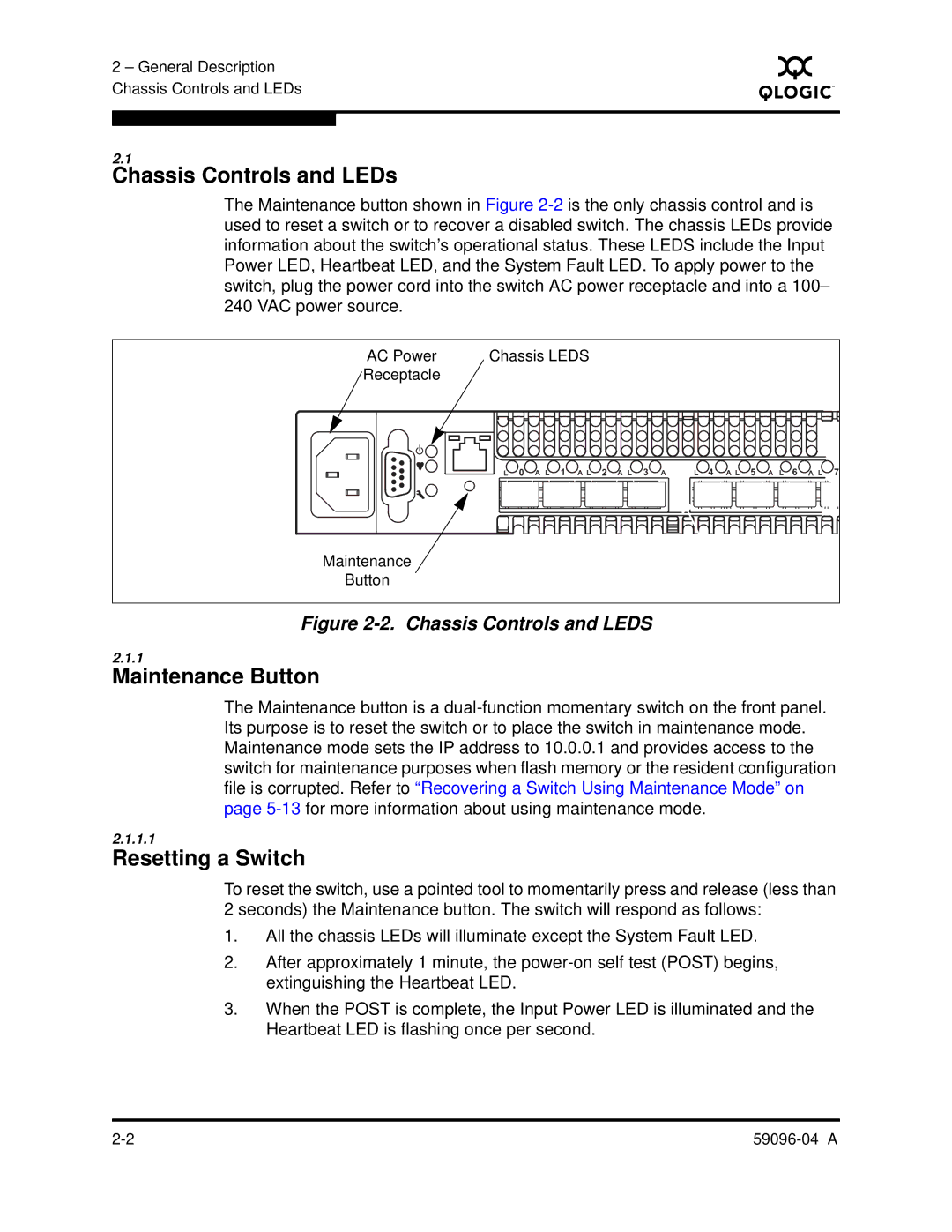2 – General Description Chassis Controls and LEDs
2.1
Chassis Controls and LEDs
The Maintenance button shown in Figure 2-2is the only chassis control and is used to reset a switch or to recover a disabled switch. The chassis LEDs provide information about the switch’s operational status. These LEDS include the Input Power LED, Heartbeat LED, and the System Fault LED. To apply power to the switch, plug the power cord into the switch AC power receptacle and into a 100– 240 VAC power source.
AC Power | Chassis LEDS | |
Receptacle | | |
| L 0 A L 1 A L 2 A L 3 A | L 4 A L 5 A L 6 A L 7 |
Maintenance | | |
Button | | |
Figure 2-2. Chassis Controls and LEDS
2.1.1
Maintenance Button
The Maintenance button is a dual-function momentary switch on the front panel. Its purpose is to reset the switch or to place the switch in maintenance mode. Maintenance mode sets the IP address to 10.0.0.1 and provides access to the switch for maintenance purposes when flash memory or the resident configuration file is corrupted. Refer to “Recovering a Switch Using Maintenance Mode” on page 5-13for more information about using maintenance mode.
2.1.1.1
Resetting a Switch
To reset the switch, use a pointed tool to momentarily press and release (less than
2 seconds) the Maintenance button. The switch will respond as follows:
1.All the chassis LEDs will illuminate except the System Fault LED.
2.After approximately 1 minute, the power-on self test (POST) begins, extinguishing the Heartbeat LED.
3.When the POST is complete, the Input Power LED is illuminated and the Heartbeat LED is flashing once per second.

